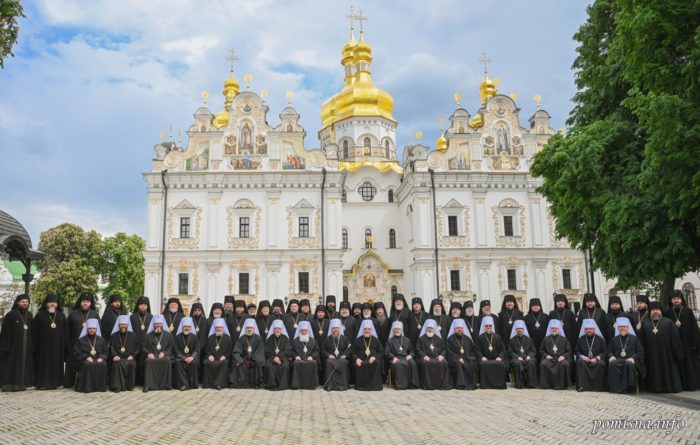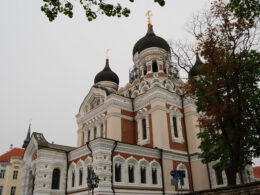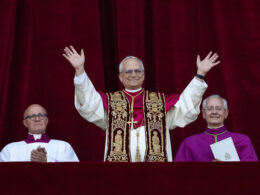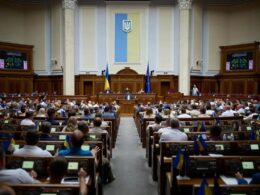The Orthodox Church of Ukraine announced its decision to adopt the New Julian, or Revised Julian calendar, from 1 September 2023. This means it will celebrate Christmas and other immobile feasts on 25 December like most of the world’s Christians, but Easter according to the Julian calendar.
The decision, approved on May 24 by the Bishops' Council of the Local Orthodox Church of Ukraine chaired by OCU primate Metropolitan Epifaniy, marks a symbolic break with Moscow.
Most Orthodox Churches use this Revised Julian Calendar, sans the Russian, Serbian, Macedonian, Georgian Orthodox Churches, as well as the Greek Orthodox Patriarchate of Jerusalem. They continue to abide by the Julian calendar, which lags 13 days behind the Gregorian one conventionally used in most of the world (more about the calendar difference here).
The OCU's calendar switch follows an analogous decision
by Ukraine's second-largest church, the Greek Orthodox Church, in February.
It is expected that the Russian-backed Ukrainian Orthodox Church under the Moscow Patriarchate (UOC MP) will continue using the Julian calendar.
The OCU resolution gives parishes and monasteries the option to stick with the old calendar if they so wish.
"This decision has been long awaited by the majority of the faithful of our church, and the majority of Ukrainian society. This decision was not simple, we came to it over a long time, step by step, and make it deliberately," Metropolitan Epifaniy said, explaining the decision.
He compared the shift in the calendar to previous significant changes in the church, such as the adoption of the Ukrainian vernacular in services instead of traditional Church Slavonic, and the establishment of the church's autocephalous status. These changes weren't universally embraced but were considered faithful and vitally necessary, he said.
Following the approval of the decision by the Local Council on July 27, the new calendar will be implemented from September 1. However, it is emphasized that parishes and monasteries wishing to adhere to the old calendar will have the opportunity to do so.
Following Russia’s full-scale invasion of Ukraine, a movement to change the church calendar arose as yet another political statement of distancing from Moscow, as the Russian Orthodox Church is the largest church in the world to abide by the Julian calendar.
Anatomy of treason: how the Ukrainian Orthodox Church sold its soul to the “Russian world”
While the Ukrainian state and then USSR switched from the Julian calendar to the Gregorian one in the 1920s, the churches did not. After Ukraine became independent in 1991, the calendar issue became a long-debated one. The Russian war against Ukraine changed the opinions of those hesitating in favor of calendar reform.
The issue of the calendar switch is part of a larger movement critical of the UOC MP, which is accused of aiding Russia's aggression by means of promoting the Russian world ideology. Since the fall of 2022, UOC MP leaders have been pressurized by Ukraine's security service, raids carried out in UOC MP monasteries, lease agreements allowing the UOC MP to use state-owned temples have been terminated, and parishes have switched hands
from the UOC MP jurisdiction to the OCU.
Related:
- Historical decision: Ukrainian Greek Catholics to mark Christmas on 25 December in symbolic break with Russia
- Why do most Ukrainians celebrate Christmas on January 7, not December 25?
- Why does Ukraine celebrate Easter on a different date than most of the world?
- More parishes leave Moscow-backed Ukrainian Orthodox Church amid growing pressure, anger, and chaos
- Anatomy of treason: how the Ukrainian Orthodox Church sold its soul to the “Russian world”
- Moscow Patriarchate’s war in the Kyiv-Pechersk Lavra: church turmoil in Ukraine, explained
- How the Russian Orthodox Church enabled Putin’s war against Ukraine
- Russian World: the heresy driving Putin’s war





